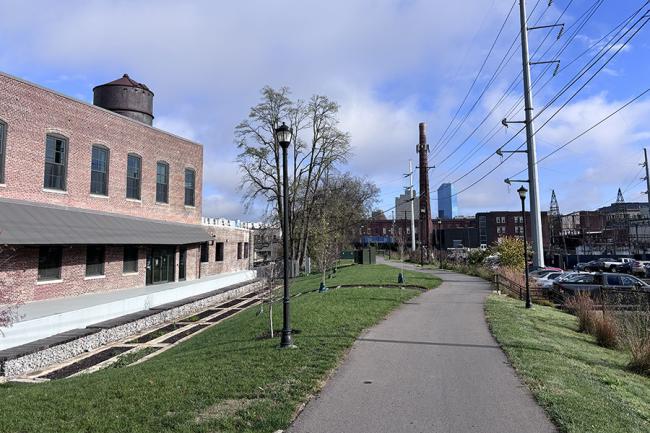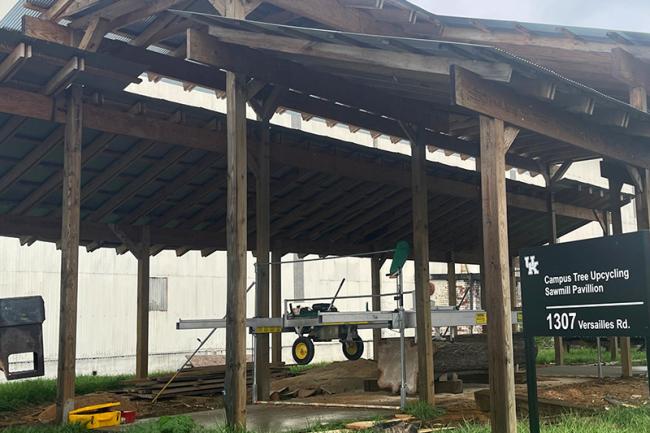CoD Faculty and Staff Awarded Two UK Sustainability Challenge Grants
Now in its tenth year, the Sustainability Challenge Grants (SCG) program supports the development of scholarly, creative and research projects that promote sustainability, engage students and advance academic disciplines. The program also strives to enhance economic vitality, uphold ecological integrity and foster social equity. This year, design faculty and staff are part of two of the five projects awarded an SCG.
S.K. O’Brien, assistant professor in the Department of Product Design, is co-principal investigator on the Art Walk in a Prairie Grassland project. The project seeks to transform the current walkway between the Gray Design Building and the School of Art and Visual Studies (SA/VS) building into a vibrant native prairie grassland landscape. The initiative incorporates sustainable practices by using native plants, creating carbon-sequestering habitats and supporting biodiversity, particularly for birds and pollinators. The space will also include student-created artwork, picnic areas, shade trees and interpretive signage. The project will be a collaboration between students and faculty from landscape architecture, product design, and visual arts, as well as the university's Physical Plant Division.
Fabrication Lab Manager Sophia Thomas along with Department of Product Design Lecturer Pooya Mohaghegh and School of Architecture faculty members Bruce Swetnam and Jill Leckner are team members for the Campus Woods Utilization 3.0 project. This project builds on two previous SGC-funded projects. The 2020 Building Community Through Innovation and Sustainability of Kentucky’s Forest project promoted the use of hyper local hardwood from the UK campus urban forest through sustainable forest management and funded the Lucas mill at the campus’s sawmill pavilion. The 2024 Next Steps in Campus Wood Utilization (Kiln) project funded a kiln for drying the wood milled on campus. Wood produced in the mill is used in on-campus construction, lessening materials costs for the university, and in forestry, architecture and product design courses, lessening materials costs for students.
With the first two projects funding the necessities for starting the mill and beginning production, this 3.0 iteration involves optimizing the space for long-term success. To do this, the proposal includes infrastructure upgrades such as the installation of a sliding barn door and gravel pathways to streamline materials' movement and reduce equipment wear. It also aims to develop a standard operating procedure and enhance educational engagement, such as providing hands-on opportunities for students to learn about tree-to-lumber processing.
These awards were announced at the annual UK Sustainability Showcase in October. Calls for 2025-2026 SCG proposals are expected to open early next fall.


